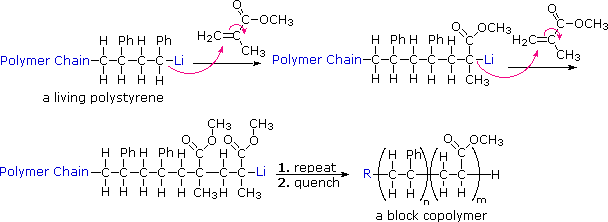Exploring the Varied Applications and Advantages of Polymers in Different Industries
Polymers, with their varied variety of properties and performances, have come to be important in various sectors, each reaping one-of-a-kind advantages from their application. From enhancing safety and security and performance in the automotive field to reinventing medical tools in the health care industry, polymers play a pivotal duty.
Automotive Market Applications
Polymers play a crucial function in improving the performance and toughness of different elements within the auto market. These flexible materials are extensively made use of in the manufacturing of different components, varying from indoor elements to under-the-hood applications. One popular use polymers in the vehicle sector is in the manufacturing of light-weight parts. By replacing traditional steel get rid of polymer-based choices, automobiles can achieve enhanced gas performance without jeopardizing on stamina or safety.

Health Care Sector Advantages
In different health care applications, the benefits of using polymers are extensively identified for their varied series of advantageous properties. Polymers play an important function in the medical care sector as a result of their versatility, biocompatibility, and cost-effectiveness. One of the primary advantages of polymers in health care is their capacity to be customized to details requirements, such as versatility, durability, and biodegradability, making them optimal for a vast variety of clinical applications.
Polymer-based products are thoroughly used in medical tools, such as catheters, implants, prosthetics, and medicine distribution systems, due to their biocompatibility and capacity to imitate natural tissues. These materials can minimize the risk of sensitive responses or rejections, enhancing patient security and results. Furthermore, polymers are lightweight, making them suitable for wearable medical devices and making certain patient comfort.
Moreover, polymers make it possible for the development of innovative treatment methods, such as hydrogels for cells design and nanocomposites for targeted medication shipment. Their simplicity of handling and sterilization makes them essential for preserving high criteria of hygiene in medical care settings. On the whole, the diverse advantages of polymers add considerably to innovations in medical innovation and patient care.
Ecological Advantages of Polymers

Additionally, polymers can add to power financial savings as a result of their light-weight nature. In markets such as transport, light-weight polymer materials can assist minimize fuel usage and greenhouse gas discharges. Furthermore, polymers can make it possible for the growth of energy-efficient items such as insulation products that boost power preservation in buildings.
In addition, polymers play an important duty in reducing water pollution. The usage of polymer-based purification systems can successfully eliminate contaminants and contaminants from wastewater, safeguarding water sources and ecosystems. On the whole, the environmental benefits of polymers make them valuable properties in advertising sustainability and green techniques across various sectors.
Polymers in Electronic Devices and Innovation
Considering the increasing need for ingenious and sustainable remedies in modern-day industries, the integration of innovative polymer innovations in the realm of electronic devices and innovation has emerged as a pivotal strategy for driving performance and efficiency. Polymers have changed the electronics industry by making it possible for the manufacturing of lighter, a lot more versatile, and durable digital tools. From smart devices to clinical tools, polymers play a critical function in improving item layout and capability.
One significant advantage of polymers in electronic devices is their shielding properties, which help protect delicate digital parts from environmental variables and electrical disturbance. In addition, polymers are important in the growth of flexible screens, wearable technology, and published electronic description devices, providing limitless possibilities for creating smart and interconnected gadgets.
In addition, the use of polymers in electronic product packaging has actually led to developments in miniaturization and thermal administration, improving the overall efficiency and reliability of digital systems. As technology remains to progress, the convenience and versatility of polymers will most certainly drive further technology in the electronics market, shaping the future of technology.
Function of Polymers in Building and Infrastructure
The assimilation of sophisticated polymer materials in building and construction and framework jobs has actually transformed the way structures are developed and integrated in modern times. Polymers supply numerous advantages in the construction market due to their convenience, toughness, and cost-effectiveness. One key role of polymers in construction is their use in coverings and sealers, supplying defense against ecological elements such as wetness, UV radiation, and deterioration. Additionally, polymers are utilized in the manufacturing of lightweight and high-strength composite materials, improving the architectural honesty of buildings while lowering general weight.
Additionally, polymers play a vital role in sustainable building and construction practices by enabling the development of energy-efficient structures. Protecting products made from polymers help control indoor temperatures, minimizing the requirement for home heating and cooling systems and inevitably decreasing power intake. Moreover, making use of about his polymer-based compounds in facilities click tasks such as bridges and roadways enhances their long life and lowers maintenance costs. Generally, the consolidation of polymers in construction and facilities displays their substantial effect on modern-day engineering practices.
Final Thought
In conclusion, polymers play a critical role in various markets such as automobile, health care, ecological, electronic devices, and construction. From boosting fuel effectiveness in vehicles to improving clinical tools, polymers use various benefits.